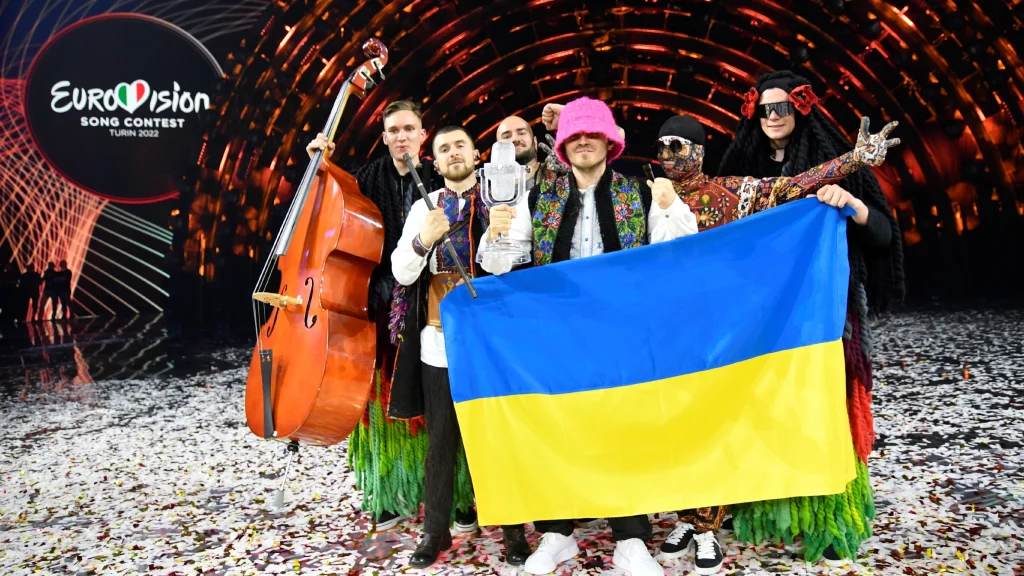Why is Australia competing in Eurovision? The Eurovision Song Contest is one of the world’s most popular music competitions. It is an annual event that brings together countries from all over Europe to compete against each other in a grand celebration of music, culture, and diversity. However, in recent years, a non-European country, Australia, has been invited to participate in the competition. This has led many to ask the question: Why is Australia competing in Eurovision?
To understand why Australia is competing in Eurovision, it is essential to look at the history of the competition and the relationship between Australia and Europe.
The Eurovision Song Contest has been around since 1956 and was created as a way to bring together European countries after the devastation of World War II. It was designed to promote peace and unity across the continent through the universal language of music. The competition quickly became a cultural phenomenon, attracting millions of viewers from all over the world.
Over the years, the competition has expanded to include more and more countries, with the contest now featuring over 40 countries from Europe and beyond. In 2015, the European Broadcasting Union (EBU), the organization that produces Eurovision, invited Australia to participate in the competition as a one-time guest.
Australia’s inclusion in Eurovision was initially met with some skepticism, with many questioning why a non-European country was being invited to participate in a competition that was designed for European countries. However, it quickly became apparent that Australia’s participation was more than just a publicity stunt.
Australia has a long history of love for Eurovision, with the competition attracting a large and dedicated following down under. The contest is broadcast live in Australia, and Australian viewers have been tuning in for many years to watch the spectacle unfold.
Furthermore, Australia has a strong connection to Europe, with a significant proportion of the population having European ancestry. Many Australians have family and cultural ties to Europe, and Eurovision is seen as a way to celebrate this connection and showcase the country’s multiculturalism.
Australia’s participation in Eurovision has also been seen as a way to broaden the competition’s appeal and reach a new audience. Eurovision has traditionally been associated with campy pop music and flamboyant performances, but Australia’s participation has brought a new level of seriousness and credibility to the contest.
Australia’s entry into Eurovision has been a huge success, with the country finishing in the top 10 every year since its debut. Australia’s participation has also helped to increase the competition’s global reach, with millions of viewers tuning in from outside of Europe to watch the contest.
Australia’s involvement in Eurovision has also opened the door for other non-European countries to participate in the competition. In 2018, for example, Israel won the competition, despite not being geographically located in Europe. Israel’s victory was seen as a testament to the global appeal of Eurovision and the competition’s ability to bring people together from all over the world.
In conclusion, Australia’s participation in Eurovision has been a significant development in the competition’s history. While some may question why a non-European country is being invited to participate in a competition designed for European countries, it is clear that Australia’s inclusion has brought a new level of excitement and diversity to the contest.

Australia’s participation in Eurovision has helped to broaden the competition’s appeal and increase its global reach. It has also been seen as a way to celebrate the country’s multiculturalism and its strong connection to Europe.
While some may still view Australia’s participation in Eurovision as controversial, it is clear that the country’s involvement in the competition has been a huge success, both for Australia and for Eurovision as a whole. As long as the competition continues to promote peace, unity, and diversity, there is no reason why other non-European countries should not be invited to participate in the competition in the future. It is a testament to the power of music and the importance of celebrating our differences and coming together as a global community.
In addition, Australia’s success in Eurovision has also led to the creation of the Asia-Pacific version of the competition, known as the Eurovision Asia Song Contest. The event was initially planned for 2018, but due to unforeseen circumstances, it has been delayed. The competition will feature countries from the Asia-Pacific region, including Australia, and will follow a similar format to Eurovision. The competition is expected to be another exciting event, showcasing the musical talents and cultural diversity of the Asia-Pacific region.
In conclusion, the inclusion of Australia in Eurovision has been a significant development for the competition, bringing a new level of diversity, excitement, and global appeal. It has also helped to celebrate the country’s multiculturalism and its strong connection to Europe. While some may still question why a non-European country is participating in Eurovision, it is clear that Australia’s involvement has been a huge success and has helped to promote the values of peace, unity, and diversity that are at the heart of Eurovision. We look forward to seeing Australia and other non-European countries continue to participate in Eurovision and celebrate the universal language of music.





